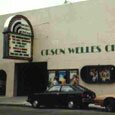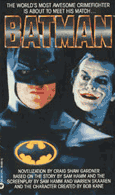Biography
Or: How I Learned to Start Loving the Words
Life in Ancient Greece

I was raised in Greece. Greece, New York.
New York State has a lot of names that come from somewhere else. Troy NY, Utica NY, Rome NY, Jerusalem NY, even an Egypt NY. Settlers in NY liked to name places as though they might import the classical grandeur of far off sites and romantic destinations. My particular Greece is actually a suburb of Rochester, NY. My neighborhood in Greece was called KodaVista because, at the back of the development, you could see Kodak (a.k.a. The Eastman Kodak Company, which was where my father worked). Much worse, when the wind was right you could smell Kodak. Specifically, you could smell Distillation Product Industries, a division of Kodak whose sole purpose appeared to be making made noxious smelling chemicals so we might get a whiff of them in my neighborhood. When in my later life I grow a second head, I will know where it came from.
Houses are still relatively cheap in upstate New York. There is a reason for this. A four-letter reason. Snow. Upstate New York has this incredibly cold in the winter/blazingly hot in the summer climate which breeds a hearty stock. Not that it snows all the time in Rochester. On a recent visit, we were greeted by Rochester's other weather -- Freezing Rain.

Rochester is also the home of a lot of nice people (The weather seems to drain the meanness out of them.) and, the real reason for the existence of Upstate New York, red hots and white hots. A.k.a. Porkers and Texas Hots. Like all great foods, they taste wonderful and are not at all good for you. Well, they are no doubt better for you than pork rinds. Anything is better than pork rinds. But I digress. Pork hots and Texas hots are Americanized versions of a couple of traditional German sausages -- bratwurst and knockwurst, respectively.
I escaped from Rochester when I was 18.
My later life has absolutely no points of interest. Well, maybe it does, but I haven't written them down yet.
Still Losing it at the Movies

1969 draft resistance near Boston University Photo by Peter Simon
I attended Boston University in the late 60s-early 70s, where I majored in Broadcasting and Film. At the time of my graduation, there were no jobs in my field -- actually, due to the high quality recession going on just then, there were no jobs in anything. I therefore continued my fascinating career in shipping and receiving. I was a card carrying union member at an old fashioned men's suit manufacturer. I worked in a place full of tailors from the old country (or countries), chatting women on sewing machines, wisecracking fellow shippers, and our very own bookie that would come in every day so everybody could play their number. This was --just barely -- before the creation of the State Lottery, which was, of course, supposed to get rid of the numbers racket. As soon as the State Lottery started, the bookie showed up selling lottery tickets.
This bookie was one of the shortest guys I'd ever seen, maybe 5 feet if he stood on his toes. He always wore a three piece suit and smoked a big cigar. He ended up being the model for Big Louie, the sidekick character in the Cineverse novels I would write a few years later.

The place I saw 400 movies in a year Photo by Andy Lee
But here comes the important part. At the very same time I was working in shipping, my wife of the moment got herself a job working for the Orson Welles Movie Theater. This was in the days before videotape, when if you wanted to see an interesting film you either had to go out and see it in an actual theater -- or stay up all night (the good stuff was never on before 11:30) and watch it on TV. At the time, Boston had one big theater chain and a bunch of independent repertory and second run houses. Programs were usually double features at the smaller theaters, and could change as often as three or four times a week. And these smaller film palaces had a reciprocal agreement -- you worked in any one of them, you could get into all of them -- for free.
For free.
This meant we could watch as many movies as we wanted to -- for free. In the year to come, I managed to see over 400 films. For free. Yes, this is more than a movie a day. Yes, this was utter madness. But they were free.
What could I do after that but write the Cineverse Cycle?
The Standard Bio
Craig Shaw Gardner was born and raised in Rochester, New York, home of the Eastman Kodak Company, the Rochester Red Wings, red hots and white hots, and a whole bunch of snow (see Entry on Ancient Greece). He came to Boston to attend Boston University in 1967, and he's been here ever since. Eventually, he graduated from B.U. with a B.S. degree (appropriately enough) in Broadcasting and Film. On the strength of this degree and the recession of 1971, he immediately got a job as a shipper/receiver for a men's suit manufacturer. Other jobs Craig has held include working in hospital public relations, running a stat camera, and managing a pair of bookstores in Harvard Square: The Million Year Picnic and the late, lamented Science Fantasy Bookstore.

Changing my name forevermore
Craig sold his first short story in 1977, and began writing full time in 1987. While most of his early novels are humorous fantasy, the majority of his short stories have been sold to original horror anthologies such as SHADOWS, MIDNIGHT, DOOM CITY and other cheerful names. His novelization of BATMAN spent something like 13 weeks on the New York Times bestseller list, changing his name on book covers to "New York Times Best-selling Author Craig Shaw Gardner" forevermore. His last few books have wandered over into the "epic fantasy" realm; the last three have been written under the pseudonym "Peter Garrison," which will show up right next to Craig Shaw Gardner on those bookshelves.
Among his many other activities, Craig was both president and trustee of the Horror Writers Association; is the continuing co-host of the Kirk Polland Memorial Bad Prose Competition, held more or less annually at Readercon; and is one of the Secret Masters of Camp Necon, which is not so much a convention as a way of life.